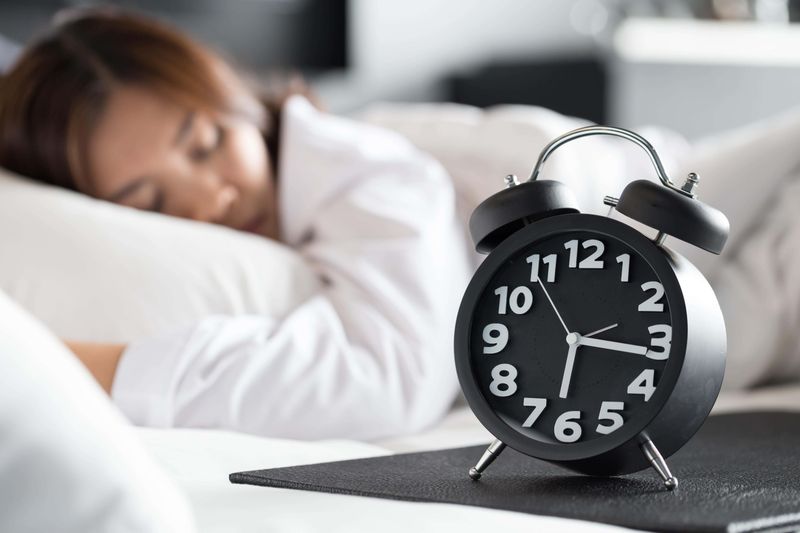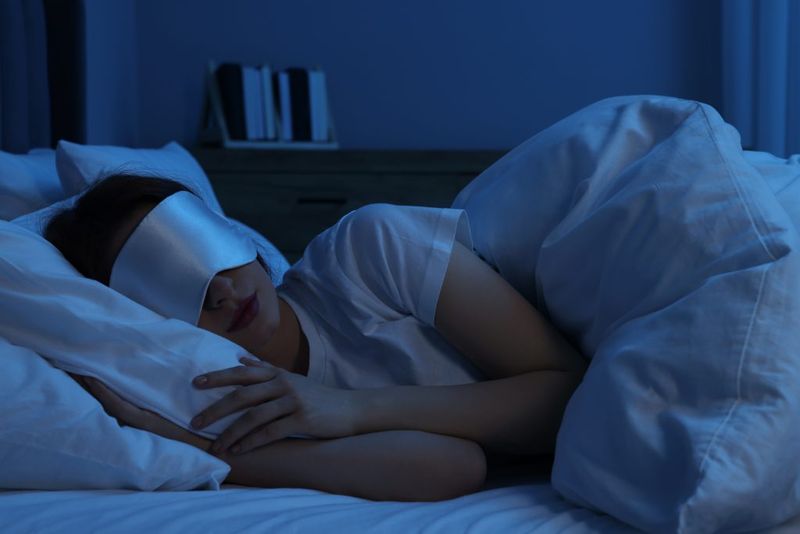11 Reasons You’re Not Sleeping Well (And How to Fix Them)

Sleep troubles can turn your nights into frustrating battles with the clock. When you can’t sleep well, your health, mood, and daily performance all take a hit. The good news is that most sleep problems have solutions once you identify what’s causing them. Let’s look at some common reasons behind poor sleep and what you can do to fix them.
1. Too Much Screen Time Before Bed

Blue light from phones, tablets, and computers tricks your brain into thinking it’s still daytime. This disrupts your body’s production of melatonin, the hormone that signals it’s time to sleep.
Try implementing a digital curfew at least one hour before bedtime. Replace scrolling with reading a physical book, gentle stretching, or writing in a journal. If you must use devices, consider blue light blocking glasses or enable night mode on your devices.
Many people find that charging phones outside the bedroom eliminates the temptation to check notifications during the night.
2. Irregular Sleep Schedule

Your body thrives on consistency. Going to bed at 10 PM some nights and 2 AM others confuses your internal clock, making it harder to fall asleep and wake up refreshed.
Set a regular bedtime and wake-up time—even on weekends. Your body will eventually adjust, making falling asleep and waking up much easier. Start by shifting your schedule gradually in 15-minute increments until you reach your target times.
After a few weeks of consistency, you might find yourself naturally waking up even before your alarm sounds.
3. Your Bedroom Environment Needs Help

Room temperature, noise levels, and lighting all affect sleep quality dramatically. Most people sleep best in cool, dark, and quiet spaces—but many bedrooms fail this basic test.
Aim for a bedroom temperature between 60-67°F (15-19°C). Invest in blackout curtains to block outside light and consider earplugs or a white noise machine if noise is an issue. Remove clutter that might create mental stimulation or stress when you’re trying to wind down.
Your bed itself matters too—a mattress and pillows that properly support your body can transform your sleep experience.
4. Caffeine Lingering in Your System

That afternoon coffee might be sabotaging your sleep without you realizing it. Caffeine has a half-life of 5-6 hours, meaning half the caffeine from your 3 PM cup is still active at 9 PM.
Cut off caffeine intake by early afternoon—ideally before 2 PM. This includes coffee, many teas, chocolate, and some medications. Watch for hidden sources like certain sodas or energy drinks that might not obviously advertise their caffeine content.
If you crave a warm drink in the evening, try caffeine-free herbal teas like chamomile or valerian root, which actually promote sleep.
5. Stress and Racing Thoughts

Mental load follows many of us to bed. Work problems, relationship issues, or financial worries can keep your mind spinning when you should be drifting off.
Create a “worry time” earlier in the evening to address concerns before bedtime. Write down thoughts and potential solutions, then mentally set them aside. Bedtime meditation or progressive muscle relaxation can help signal your brain that it’s safe to power down.
A gratitude practice before sleep shifts focus from problems to positive aspects of your day, helping to quiet the mental chatter that keeps you awake.
6. Poor Daytime Physical Activity

Bodies need physical tiredness to complement mental fatigue. Sitting all day leaves excess energy that can keep you restless at night.
Aim for at least 30 minutes of moderate exercise daily, but try to finish intense workouts at least 1-2 hours before bed. Even light activity like walking or gentle yoga helps signal to your body that you’ve done enough to earn rest.
Morning exercise particularly helps regulate sleep cycles. Those who exercise early often report falling asleep faster and enjoying deeper sleep than their sedentary counterparts.
7. Eating Too Late or Too Much

Heavy meals before bedtime force your digestive system to work overtime when it should be slowing down. Spicy or fatty foods are particularly problematic, often causing acid reflux or discomfort.
Try to eat dinner at least 3 hours before bedtime. If you need a bedtime snack, choose something light with sleep-promoting nutrients like a small banana with almond butter, tart cherries, or a small portion of turkey.
Some find that slightly elevating the head of their bed helps if nighttime digestion issues persist despite timing adjustments.
8. Undiagnosed Sleep Disorders

Sleep apnea, restless leg syndrome, and other medical conditions can wreck your sleep quality without you fully realizing it. Partners often notice symptoms—like snoring, gasping, or leg movements—before you do.
Record yourself sleeping or ask a partner to observe your sleep patterns. If you consistently wake unrefreshed despite adequate time in bed, consider a sleep study. Modern home sleep tests make diagnosis more convenient than ever.
Treatment options range from CPAP machines for sleep apnea to medication for restless legs, and the quality-of-life improvement can be dramatic.
9. Medications Affecting Sleep

Many common medications disrupt sleep as a side effect. Certain antidepressants, blood pressure medications, corticosteroids, and even some allergy medicines can cause insomnia or poor sleep quality.
Review all your medications with your doctor or pharmacist. Sometimes simply changing when you take certain medications can help. Never stop prescription medications without medical guidance, but do advocate for yourself if sleep problems began after starting a new drug.
Ask about alternatives with fewer sleep-disrupting properties if your current medications seem to be the culprit.
10. Inconsistent Bedtime Routine

Adults need bedtime routines just as much as children do. Jumping straight from high-energy activities to sleep rarely works well.
Develop a 30-60 minute wind-down sequence that signals to your body it’s time for sleep. This might include dimming lights, light stretching, reading, or taking a warm bath. Keep the routine consistent—the repetition helps train your brain to recognize sleep cues.
Aromatherapy with lavender or chamomile can enhance your routine, as these scents have been shown to promote relaxation and better sleep quality.
11. Underlying Health Conditions

Chronic pain, thyroid issues, diabetes, and other health problems often manifest as sleep disturbances. Treating only the sleep symptoms without addressing the underlying cause rarely solves the problem long-term.
Keep a sleep journal noting patterns in your sleep quality alongside other symptoms. Share this information with your healthcare provider. Sometimes what seems like insomnia is actually a symptom of something else that needs attention.
Regular check-ups and blood work can catch conditions like vitamin deficiencies or hormone imbalances that might be silently sabotaging your sleep.

Comments
Loading…